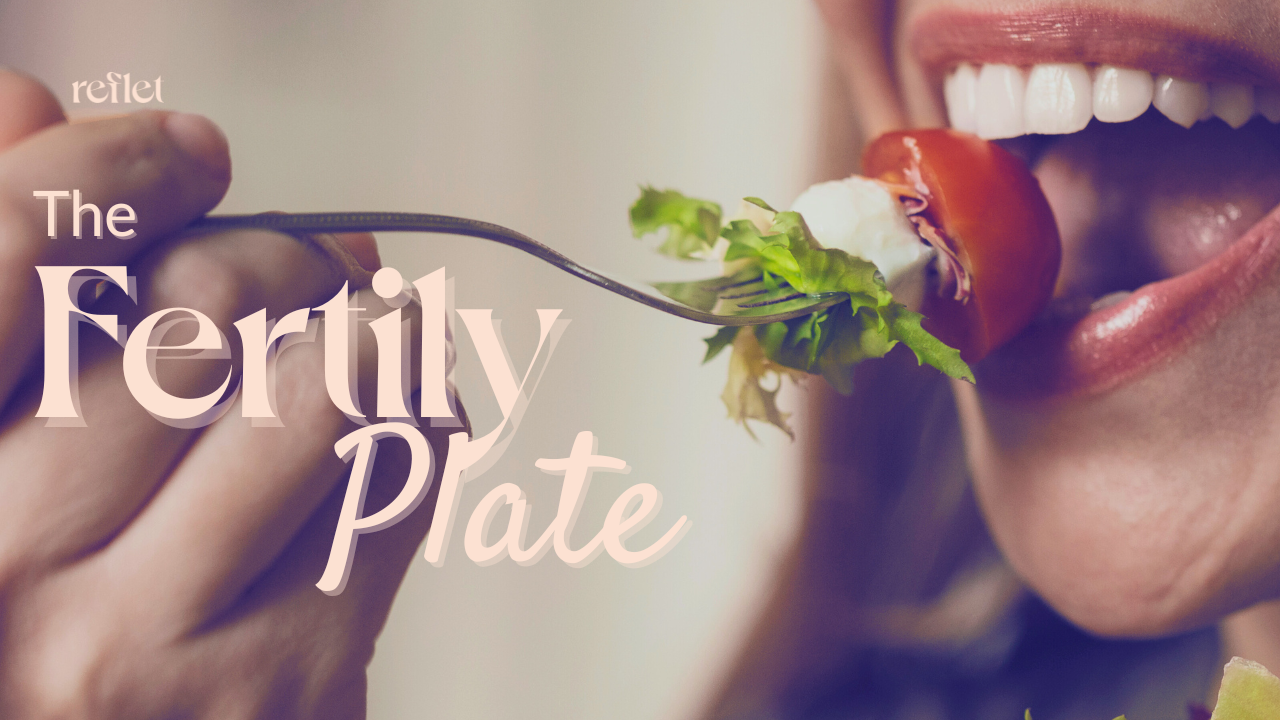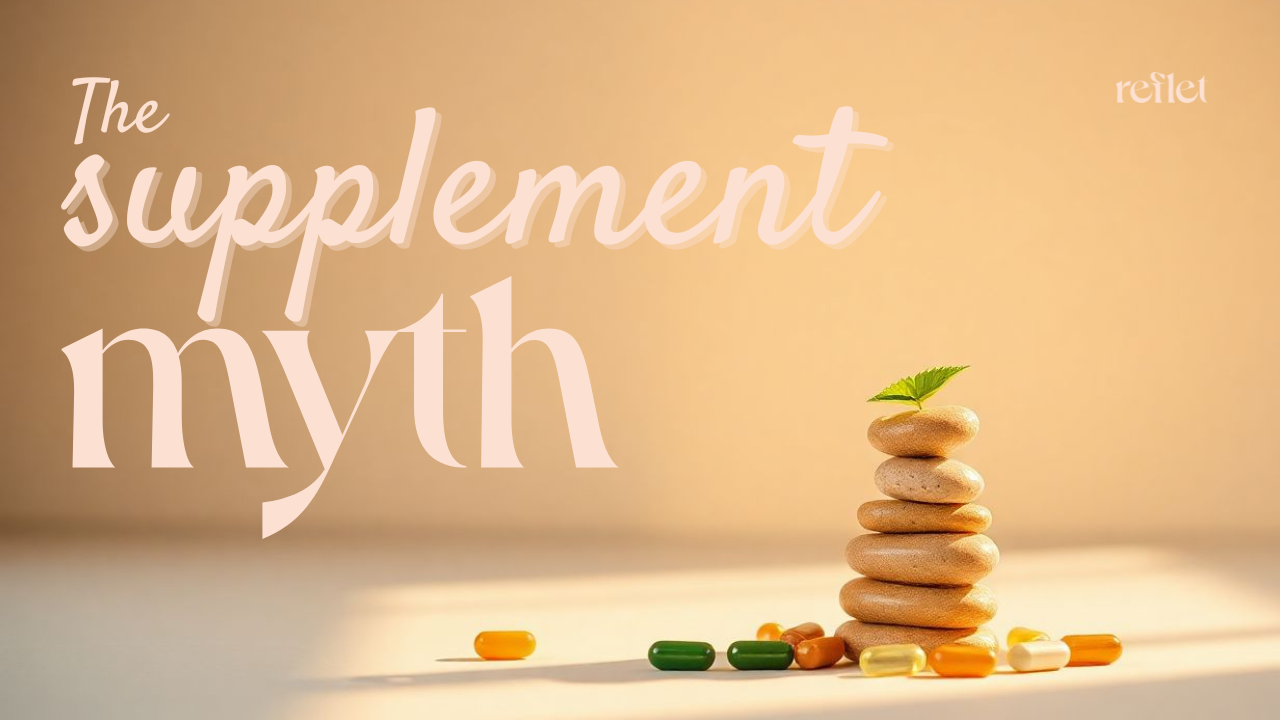Support your endometriosis with a global approach
Endometriosis affects 1 in 10 women worldwide. Being supported comprehensively, by a medical team and by multidisciplinary experts can help reduce the pain, discomfort, inflammation or anxiety associated with endometriosis.


Melisande
Founder of Reflet
Entrepreneur for 7 years, committed to women's health and with a single desire: to have a positive impact on women!
They support us





If you are here, you probably don't need to be reminded what endometriosis is. What we can tell you, on the other hand, is that it affects about 1 in 10 women and that it is being taken more and more seriously by the medical sphere. Being a female condition that has taken time to be considered, too little research has been done on the subject. At Reflet, we strongly believe in the positive impact of a global approach to patients with endometriosis. This approach is called “integrative”: this means that it involves care through various practices: medical (obviously), but also paramedical, complementary and emotional. Doctors are still too resistant to complementary approaches because there have been a lot of excesses and magic formulas announced when they do not really exist. Our aim is not to give you a magic formula. Our aim is to improve your overall well-being. This is why, specialty by specialty, we searched the net to find you studies, dissertations, surveys carried out by statistical institutes sometimes, by students at other times, in France and abroad. The aim? Get things done together for your well-being and in a secure way. This is exactly why we created Reflet: in addition to evangelizing on an integrative approach to health, we seek and select, city by city, the best multidisciplinary experts to support endometriosis. We want to help you and we want to do it with the best in their field, and only the best. In the rest of this page, you will find the known benefits of each of the approaches as well as mentions of the surveys, studies or dissertations carried out on the subject of various complementary practices and endometriosis. In all cases, it is essential to have regular medical follow-up for your endometriosis (gynecologist, general practitioner...). Integrative practices only come in addition to solid medical support.
find a specialistWhat are the worldwide statistics of endometriosis?
Endometriosis is a common and often silent disease. According to OMS, 1 out of 10 women had endometriosis, which concerned millions of womans. The diagnosis often remains tardy : the Average time is 7 years between the first symptoms and medical confirmation, even if this delay has been reduced thanks to awareness and the work of national associations working in this direction.
Endometriosis is a disease that has a particular impact on fertility: a study of CNGOF 2018, approximately 30-50% of women with endometriosis present difficulties in conceiving. Another INSERM study confirms that the more advanced the stage of the disease, the more the risk of infertility increases, in connection with an attack on the ovaries or the tubes.
The good news? By taking a global approach, it is possible to reduce inflammations related to endometriosis, take care of your oocytes and improve emotional well-being.
What is the role of a midwife in supporting endometriosis?
Endometriosis is a disease that is still too poorly detected, often diagnosed late, and very unevenly managed. In this context, the role of midwives is becoming more and more visible: they act as key players in identification, orientation and emotional support. Whether they work as a freelancer or in connection with specialized centers, they play a valuable role for women suffering from chronic pain, cycle disorders, or engaged in a fertility journey.
What can a midwife do in case of endometriosis
Some midwives are today specifically trained in the management of gynecological pain. Their role is multiple:
- Identify and guide at the first symptoms : cyclical pain, hemorrhagic periods, digestive pain related to the cycle...;
- Educating in gynecological health : helps to understand hormonal functioning, the role of the cycle, ways of natural relief;
- Ensure regular monitoring of the cycle : in connection with fertility, baby trials, or simply to improve the quality of life;
- Offer emotional support : presence in moments of doubt, diagnostic error or chronic pain;
- Collaborate with other professionals : gynecologist, physiotherapist, psychologist, nutritionist, by promoting consistent support.
Regular follow-up with a midwife allows To not be alone with the pain, to dare to talk about the effects of illness in daily life, sexuality, fatigue, the parental project.
Midwives are not yet identified as key professionals in cases of infertility and endometriosis, and yet:
- A qualitative study published in Midwives (Elsevier, 2023) highlights the structuring role of midwives in the identification and coordination of the course. They are identified as stable listening patterns, particularly important in journeys that are often experienced as fragmented or chaotic.
- A maieutics thesis defended at the University of Lyon 1 (2020) shows that Midwives may be the first professionals to hypothesize endometriosis, especially in the case of unexplained cyclical pain. Their ability to listen and follow closely allows a bouts
- Finally, a thesis from the University of Strasbourg (2024) highlights that women with endometriosis highly value emotional and educational support provided by midwives, especially outside of the acute phases. Their role is then part of long-term support that goes beyond the medical framework.
However, midwives have a global role both in endometriosis and in fertility, when they are properly trained on these topics, they can enable patients to:
- Better understand their cycle and disease;
- Be oriented more quickly to specialists or appropriate assessments;
- To be supported in their fertility;
- Living better with pain or the side effects of treatments;
- Building a lasting relationship of trust, in a disease that is often experienced as isolating.
Their benevolence, their global approach and, where appropriate, their specialization, can have a key impact in the endometriosis and fertility journey.
Why is nutrition key in cases of endometriosis and fertility in particular?
Food does not cure endometriosis. But she can act indirectly on the symptoms (pain, inflammation, digestive disorders) and especially prepare a more favourable ground for a design, whether natural or medically assisted. In this context, the support of a dietitian trained in endometriosis and fertility can provide custom strategies : anti-inflammatory diet, glycemic regulation, targeted micronutrition...
Endometriosis, Fertility, and Nutrition Research
There is still too little research on the link between endometriosis, fertility, and nutrition. However, some memories are encouraging:
- A dissertation in clinical nutrition, produced at the University of Lorraine (2020)Observe that women with endometriosis express a strong need for nutritional information, in particular to better manage pain and optimize their fertility. The authors emphasize the need for specialized and individualized dietary support.
- A Swiss study conducted at the Haute École de Santé Vaud (HESAV) in 2022 looked at the link between diet, endometriosis and fertility. Through interviews with several affected women and the meta-analysis of various research studies, she reveals very clear trends:
- More than 8 out of 10 women believe that their diet influences not only their pain but also their hormonal balance; and therefore, potentially, their fertility.
- Those who have adopted an anti-inflammatory diet (rich in plants, omega-3, fiber) report a significant reduction in pain and an improvement in their digestive and menstrual comfort;
- Many describe a A better experience of their pregnancy journey, whether naturally or in assisted reproduction, when accompanied by a specialized dietitian;
- All the studies analyzed mention gluten-free food and its positive impact on endometriosis.
What does dietary support allow in case of endometriosis and the desire for pregnancy
A specialized dietitian can help you:
- Adopt a anti-inflammatory diet in line with hormonal needs;
- Avoid foods that are pro-inflammatory or hormone disrupting;
- Optimize oocyte quality and ovarian function;
- Work on the digestion and the microbiota, often altered;
- Supporting the liver, key in the elimination of estrogens;
- Check with you what your deficiencies are and advise you on food supplements made for you.
The support of a dietitian is effective only if it is personalized and monitored over time. Reflet specialist dietitians warn about the use of ready-made food supplements available on the market and invite you to analyze a dedicated blood test beforehand in order to have the appropriate dietary supplements.
Can osteopathy help with endometriosis?
Endometriosis is a chronic inflammatory condition that can cause pelvic pain, digestive problems, persistent fatigue, and sometimes infertility. While conventional treatments often rely on hormones or surgery, osteopathy appears to be a promising complementary approach, in particular to relieve pain and improve the quality of life.
What can osteopathy do for endometriosis?
Osteopathy does not treat endometriosis lesions directly, but it acts on the mechanical and functional consequences of the disease. It can make it possible to:
- reduce tensions in the pelvic region, often responsible for chronic pain,
- release tissue adhesions (post-surgery, inflammation, deep lesions),
- improve the organ mobility and blood circulation,
- Soothe the stress and emotional blockages, which can make the pain worse,
- accompany associated digestive, urinary or lumbar disorders.
Studies that link osteopathy and endometriosis
Clinical publications are still rare, but several dissertations and field studies report encouraging results, especially in terms of reduction in pelvic pain And of better quality of life.
- A study carried out at the University of Fribourg (2021) shows that osteopathy has allowed several patients with endometriosis to significantly reduce their chronic pain and to improve their daily comfort;
- Research work conducted in Switzerland (2022) explores the interest of osteopathy in pelvic pain associated with endometriosis. The authors highlight a visceral relaxation felt, as well as a better emotional tolerance coping with pain;
- A university survey (2019) reveals that women with endometriosis see in osteopathy a useful complementary method to regain control of their bodies and relieving pain during cycles;
- A French scientific journal (2018) Mention osteopathy among effective complementary approaches (with acupuncture and yoga) for improving the quality of life of women suffering from endometriosis.
Osteopathy does not treat endometriosis itself, but it can play a real role in supporting women, in particular for:
- Relieve chronic pelvic pain;
- Regain mobility and comfort in the body;
- Experience menstrual cycles better and daily life;
- Register in a complementary approach with medical care.
It is particularly interesting in case of persistent pains, Of fatigue or post-operative adhesions.
Is acupuncture effective against endometriosis?
More and more women with endometriosis are turning to acupuncture to relieve their chronic pain. But what can we really expect from it? Is it an effective treatment or just a one-time relief? Several clinical studies suggest that acupuncture can play a complementary role in the management of this complex disease.
Acupuncture and endometriosis: a global approach to relief
Endometriosis is a chronic inflammatory condition where endometrium-like tissue grows outside the uterus, causing pelvic pain, fatigue, digestive disorders, and sometimes infertility.
In this context, acupuncture offers an action multi-target :
- Reducing chronic pelvic pain, dysmenorrhea and pain during sex,
- Decrease in inflammatory states related to the disease,
- Improving the quality of life (sleep, anxiety, fatigue),
- Emotional support in a pathology that is often misunderstood.
Acupuncture is by the way a key factor in fertility journeys in general.
What the acupuncture and endometriosis studies show
Research on the subject is still under development, but several studies highlight real beneficial effects, in particular on soreness And the quality of life :
In recent years, several studies — ranging from case studies to clinical reviews — have highlighted the Benefits of acupuncture in the management of endometriosis, in particular on pain, fatigue and quality of life.
- In a Swiss memoir (Zufferey, 2020), women interviewed after several acupuncture sessions evoke a significant improvement in their pelvic pain, fatigue, and mood, with a real commitment to the approach;
- A thesis written by Theurel in 2020 on complementary therapies shows that acupuncture is among the practices most cited spontaneously by patients to relieve pain that is resistant to conventional treatments;
- In France, the CNGOF Recommendations (2018) mention Japanese acupuncture as A promising way to relieve endometriosis pain in adolescents, but call for more large-scale studies;
- Finally, in Brazil (Antunes et al., 2021), acupuncture is officially integrated into multidisciplinary recommendations for the management of endometriosis-related pain, alongside nutrition, physical activity and psychological support.
A promising complementary treatment, but to be integrated into a global strategy
Acupuncture Does not cure endometriosis, but she can Relieve symptoms and improve the quality of life for many women. It seems particularly useful:
- For women looking fornon-drug alternatives;
- En parallel to hormonal or surgical treatment;
- When you want to get pregnant (by reducing pain and inflammation).
However, the effects vary according to the profiles. The number of sessions, The type of acupuncture (Chinese, Japanese, little finger...) and the proven specialization of professionals is key.
.webp)
Our themes
.png)

.png)







.png)

